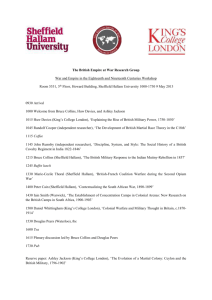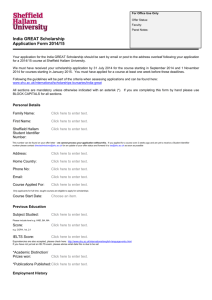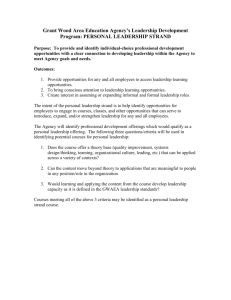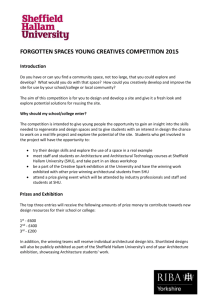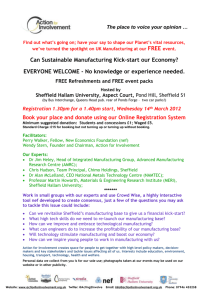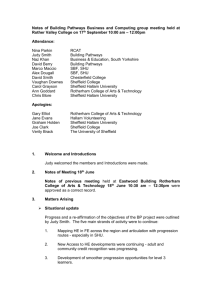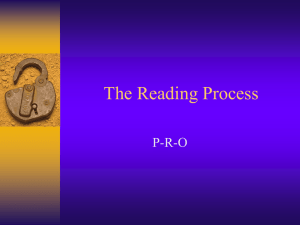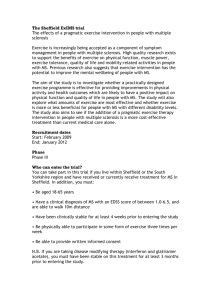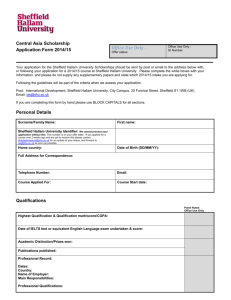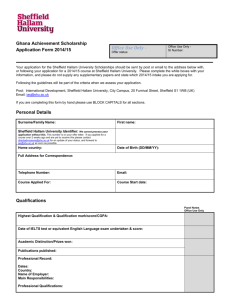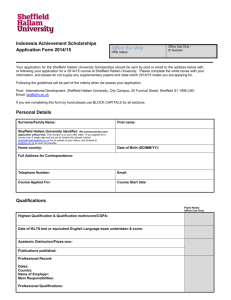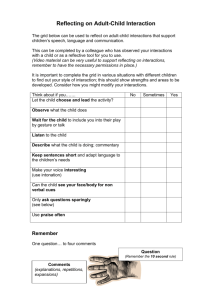John Wardle - Getting Practical
advertisement
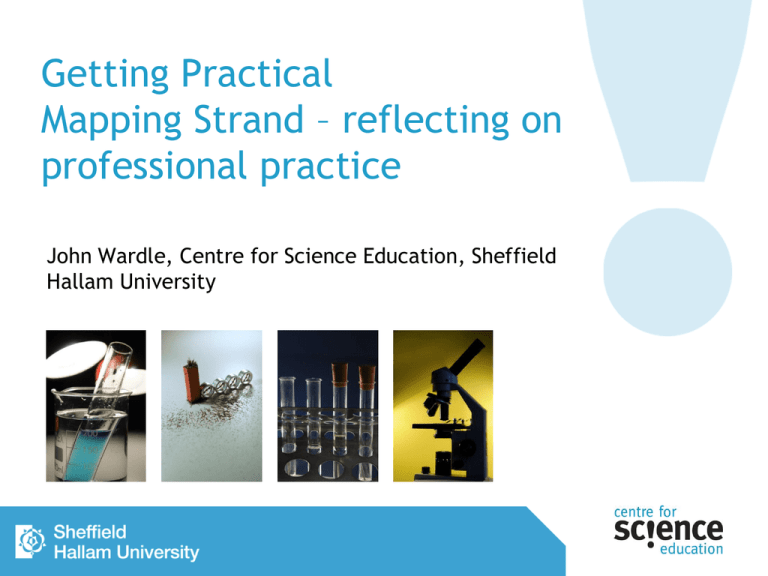
Getting Practical Mapping Strand – reflecting on professional practice John Wardle, Centre for Science Education, Sheffield Hallam University Process CSE, working with Robin Millar, developed a series of reflective tools and tasks to test the categorisation of practical activities. Teacher reference groups (TRG) used as a test bed for the process, to develop and trial materials and to refine thinking. Case studies, activities and guidance materials have been produced by working with the TRG schools, fed into CPD. Mapping the purpose of practical work audit activity (1) • Why do we do practical work? discussion activity • What is the purpose of practical activities? • What makes a practical activity effective? audit activity (2) coaching activity • How can we make a practical activity more effective? Reviewing practical activities - and identifying the key learning outcomes Reflecting on individual activities - to consider their effectiveness Case studies case studies introduction summary guidance The case studies illustrate how the ‘Getting Practical’ approach has addressed issues such as: departmental approaches and changes teaching scientific understanding through practical work developing and supporting NQTS and ITT students defining the focus of a practical activity opening up the effectiveness loop – doing to learning 1. Hands-on, minds-on 2. Understanding science through practical 3. Planning for effectiveness 4. Prioritising the purpose 5. Doing less, better Key messages be clear about the purpose of the practical activity provide appropriate challenge for students focus on a limited number of objectives teach understanding (of concepts) through practical activity version practical activities for students’ needs monitor (plan for) coverage and progression of skills, understanding, enquiry by topic/year etc. not necessary to do more practical, do less better! Getting Practical Mapping Strand – reflecting on professional practice John Wardle, Centre for Science Education, Sheffield Hallam University
